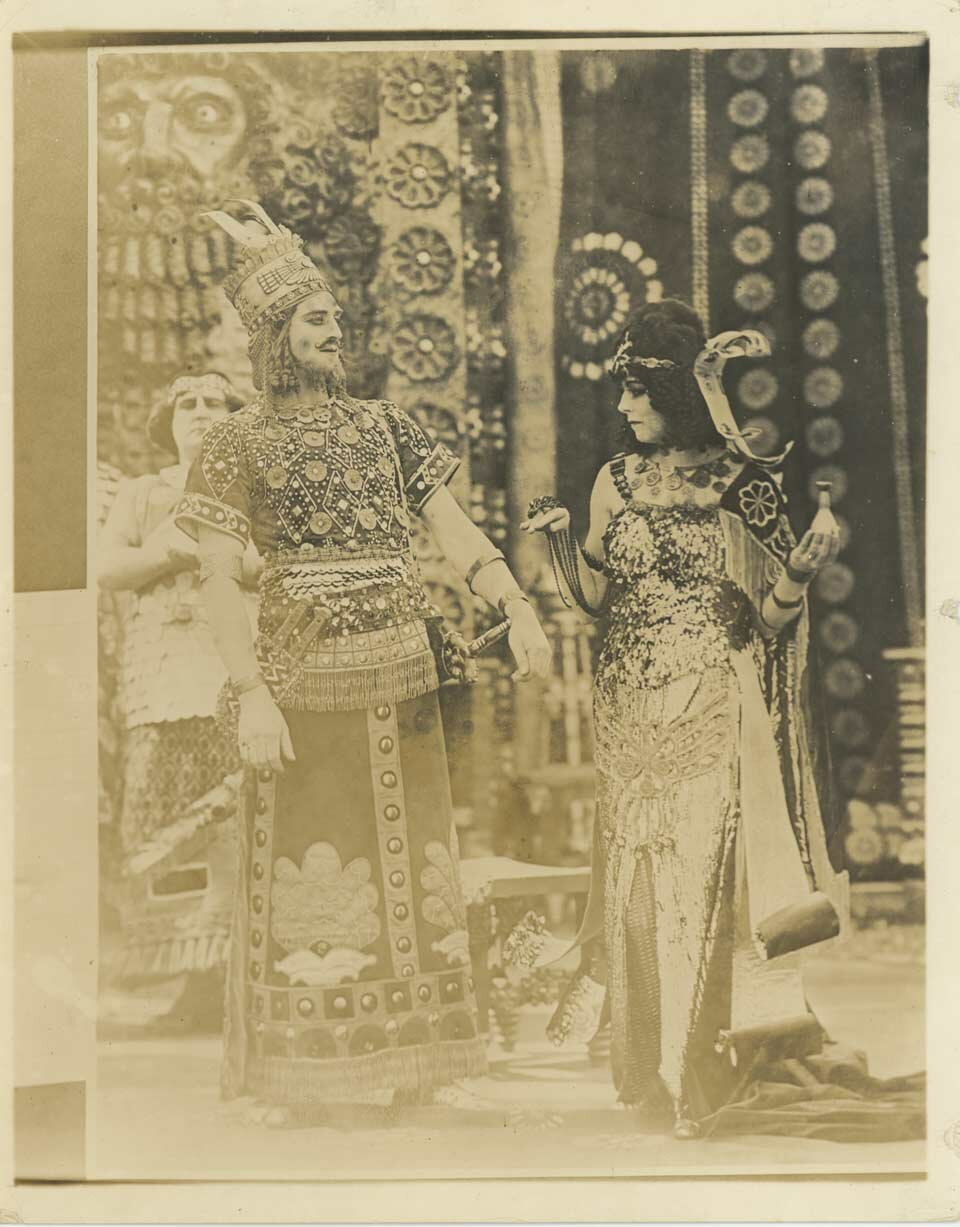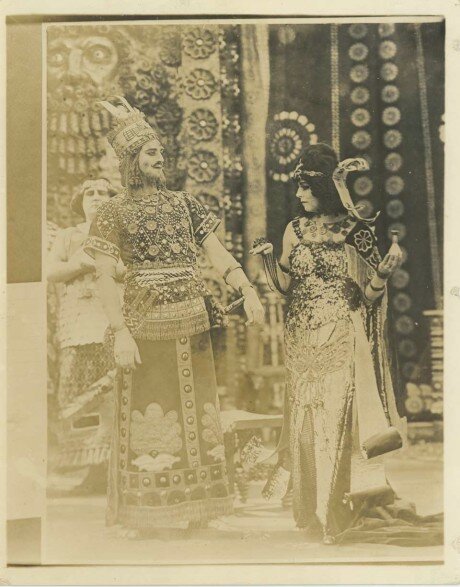| Title |
Intolerance (1916); Warped Genius in Culture |
| Category |
| gallery, Illustration |
| Why It's Interesting |
|
I just acquired this extraordinary still from D. W. Griffith’s Intolerance (1916). Griffith made this film as an attack against those who criticized hisBirth of a Nation (1915) for glorifying the Ku Klux Klan. (That film would, in fact, rejuvenate the Klan, which soon attracted millions of members around the U. S.) In other words, Griffith, the bigot, deemed others intolerant for not supporting, or at least condoning, his bigotry. Bigotry beyond the social norms of a day poses a problem for historians. It is easy to deal fairly with historical figures who shared the biases of their age. Those who hated “others” beyond the call of duty [to update Shaw] vex me and should trouble all scholars. Chopin, Wagner, Degas, Eliot, Pound et al require us to question the very concept that great art is noble, when a significant proportion of it originated in blighted, even petty, minds. Or must we go even farther and decide that all art is simply just another human accomplishment, no different from achievements in any other field? That artists, being human, are no better or worse as a class than any other group. What then of the mystique that the arts have worn so indulgently, even smugly? |

This website seeks to encourage researchers and collectors to discover and study obscure ephemera that document American culture and life. Worldcat reveals that most of the items that I post cannot be found in more than a few research libraries–often none at all. Alternately, research libraries do not bother to catalog ephemeral publications like these. I believe, however, that because these were distributed free, or at nominal cost, to consumers, they were the publications most likely to make their way into homes and be read by large numbers of Americans.
I acquire pre-1960 examples of the kinds of publications that prove so useful when scholars study 19th-Century America. The limited competition that I encounter for them suggests that libraries, which could easily outbid me, have little interest in post-Civil War and 20th-century ephemeral publications in general.
I try to anticipate what materials future historians will find useful. Being an historian first and a collector second, I organized this website to encourage others to do this too—even if this means new competition for me. I am aware that I could be wrong in prizing particular ephemera or even whole classes of ephemera. I may even be wrong to encourage scholars to study obscure ephemeral publications; these may be obscure for good reason.
Ephemerastudies.org will permit me to share with others the information and imagery that I am acquiring, and to benefit from the knowledge, intelligence and experience of other scholars and collectors. Please contact me with your impressions of the site.


